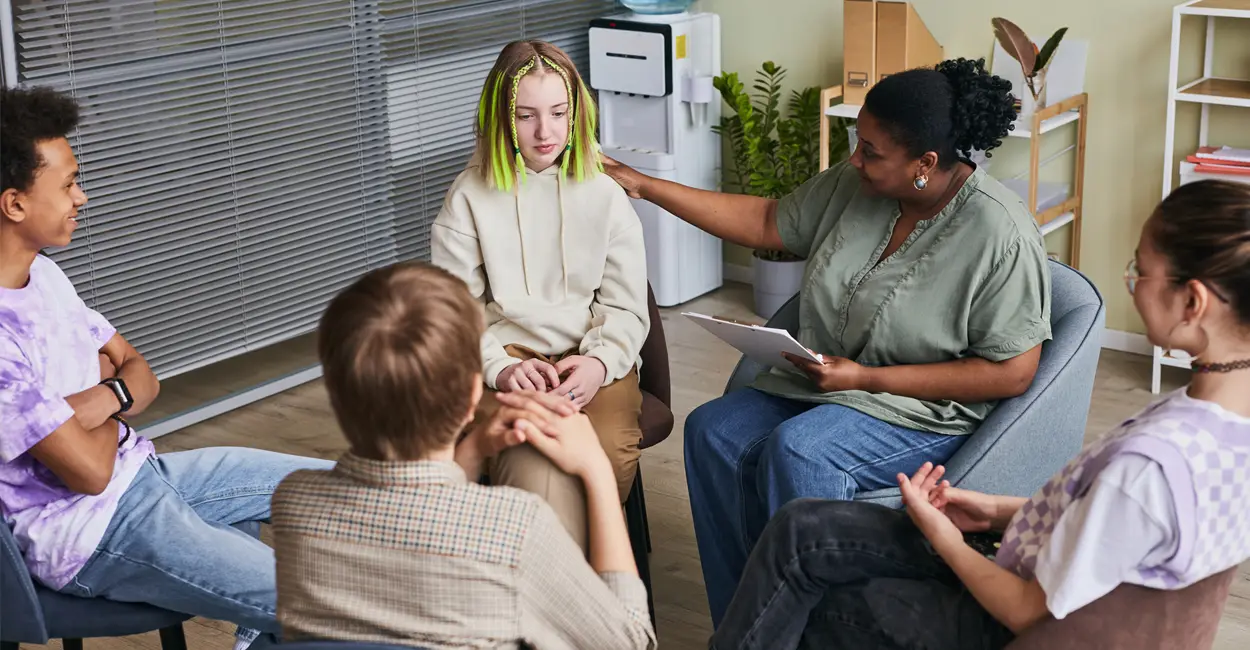24/7 Helpline:
(866) 899-111424/7 Helpline:
(866) 899-1114
Learn more about Group Therapy centers in Cliffside
Group Therapy in Other Cities

Other Insurance Options

Ambetter

GEHA

Covered California

Aetna

UMR

Magellan

Health Net

CareSource

Optum

Regence

ComPsych

WellPoint

CareFirst

Sliding scale payment assistance

Health Choice

Absolute Total Care

Excellus

Highmark

Ceridian

Premera
































